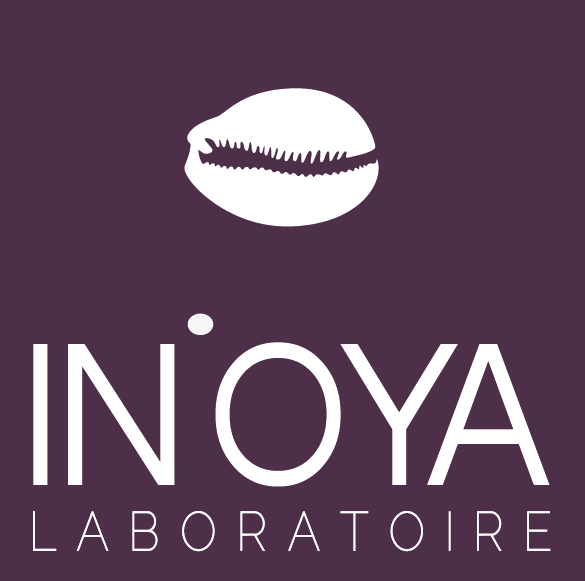On Black, brown, or mixed skin, every aesthetic procedure must be carefully considered. The use of laser treatments or depigmenting products is often driven by the desire to even out the complexion, fade spots, or treat scars. However, if these procedures are not tailored, they can worsen pigmentation disorders or even cause lasting skin damage.
Understanding the pigmentation sensitivity of darker skin
Melanin, the skin's natural protective pigment, is more concentrated and reactive in darker skin tones. This biological feature means that any skin aggression—thermal, chemical, or mechanical—can trigger an exaggerated pigmentation response. The result: darker spots (post-inflammatory hyperpigmentation) or, conversely, depigmented areas lighter than the original skin tone.
Laser on dark skin: why it’s risky
Laser technologies used in dermatology target melanin to correct spots or ingrown hairs. On Black or mixed skin, which is rich in melanin, the laser may affect not only the dark spot but also the skin’s natural pigmentation.
- Irregular depigmentation (areas lighter than surrounding skin)
- Post-inflammatory hyperpigmentation (darker spots)
- Long-lasting side effects such as scabs, burns, or scars
According to the British Journal of Dermatology, "laser treatments in darker skin types must be specifically tailored and performed by professionals trained in ethnic dermatology."
Skin diagnosis: a crucial step
Before any laser protocol, a skin diagnosis is essential: it helps assess the phototype, pigmentation history, the stability of any melasma, and the skin’s tolerance to mechanical or thermal stress.
What are the alternatives to laser for evening out skin tone?
A well-designed dermocosmetic approach can deliver visible results without risking skin damage. Effective routines include:
- An anti-spot serum targeting excess melanin
- A gentle cleanser to preserve the skin barrier
- A unifying or mattifying moisturizing cream
- SPF 50 sun protection adapted to pigmented skin
Laboratoire IN’OYA has developed patented skincare products formulated for Black, brown, and mixed skin tones. Their In & Out routines combine gentle depigmenting actives with dietary supplements to unify the skin without harming it.
Chemical depigmentation: a silent danger
The use of uncontrolled depigmenting agents (hydroquinone, corticosteroids, mercury) is still widespread in many parts of the world. However, these substances can cause:
- Uneven lightening of the skin
- Irreversible stretch marks
- Skin atrophy
- Internal hormonal disorders
According to the WHO, over 40% of women in some African regions regularly use harmful skin-lightening products, often unaware of the associated risks.
Repairing damaged skin
When skin has been damaged by chemical depigmentation, it’s essential to restore its protective barrier with reparative care rich in lipid-replenishing, anti-inflammatory, and antioxidant ingredients.
Can laser still be used on dark skin?
Yes, in specific cases and with targeted lasers such as the 1064 nm Nd:YAG. This laser penetrates deeper into the skin without affecting surface melanin. It is sometimes used to treat scars, ingrown hairs, or certain spots.
If dark spots appear after a session, they can be treated gently with anti-spot care specifically formulated for dark skin, avoiding any exfoliants or aggressive treatments in the weeks following.
And what about sun protection?
A common mistake is to neglect sunscreen. However, the sun worsens all hyperpigmentation, especially after laser or peeling. Proper sun protection should:
- Contain high SPF (50+)
- Be photostable (against UVA and UVB)
- Leave no white cast
- Hydrate without clogging pores
Sun protection must be applied every morning, even in the city or during winter. It’s a cornerstone in the prevention of pigmentation spots.
In summary
- Laser and depigmentation techniques must be approached with caution.
- Skin diagnosis is a must.
- Sun protection is non-negotiable.
- Gentle dermocosmetic care, designed for pigmented skin, remains the safest and most effective option.
Subtle note: Laboratoire IN’OYA offers complete, respectful, and targeted solutions, formulated to address these specific concerns without harming the skin.
Sources
- Alexis A. "Laser use in ethnic skin", Br J Dermatol, 2019.
- WHO – World Health Organization. “Skin lightening practices: health risks and policy recommendations”, 2017.
- Draelos ZD. “Cosmetic therapy for skin of color”, J Clin Aesthet Dermatol, 2020.


